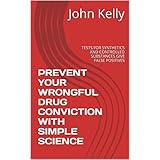Controlled Substance Analogue Enforcement Act
The DEA has ‘’identified” more than identified over 400 new designer drugs in the United States” while admitting that ”many of the designer drugs being marketed today that were seized as part of Project Synergy are not specifically prohibited in the Controlled Substances Act (CSA), the Controlled Substance Analogue Enforcement Act of 1986 (AEA) allows many of these drugs to be treated as controlled substances if they are proven to be chemically and/or pharmacologically similar to a Schedule I or Schedule II controlled substance.”
The DEA has never provided or published any proof that designer synthetic drugs are chemically or pharmacologically similar to illegal controlled substances. In a recent court case, the DEA refused to provide such proof even when ordered to do so by the court. Heather Harris, who was the defense expert in the case and is one of the top forensic chemists in the country, specializing in controlled substances, has written that: ”DEA can add whatever it wants to the controlled substance schedules as long as they follow the rulemaking process. Are they deeming non-controlled substances as analogues without proof? Sure, but this information is not available to the public. It is not even really available to defendants.”
I did have a case recently plea that was an analog prosecution and the
> gov't never revealed which scheduled compound they were using for the
> analog comparison. I told the attorney repeatedly that this should be
> challenged b/c it is ludicrous to charge and prosecute someone and never
> reveal the elements of the offense. However, this was a juvenile and he
> needed finality more than justice I guess.
> It was a really sad case for this kid. He worked as a clerk in the head
> shop that was selling massive amounts of bath salts. He got swept up in
> the sting, charged with conspiracy and branded a felonious drug offender
> for the rest of his life. All for a minimum wage job. HEATHER HARRIS
According to the DEA: ” Synthetic cannabinoids represent the most significant class of designer synthetic drugs. According to the National Forensic Laboratory Information System (NFLIS), substances identified as synthetic cannabinoids by federal, state, and local forensic laboratories increased from 23 reports in 2009 to 32,784 reports in 2013; to 37,500 reports in 2014.”
In other words, thanks to a DEA ipse dixit, replete with anectdotal horror stories, reminiscent of Reefer Madness, there are now an additional 30,000+ marijuana convictions a year in the U.S., and the DEA’s sky’s the limit.
On April 26, 2012, Mahir Silmi and Mohammed Salem were indicted for trafficking and possession of Controlled Substances Analogues in Cuyahoga County, Ohio, and their attorney sought to exclude the lab reports as based purely on subjective observations.
Judge John Russo agreed and excluded the lab reports. He ruled that: ”Looking at the theory, this Court finds no objective, reliable test in the current testing of potential analogs by the CCRFSL (Cuyahoga County Regional Forensic Science Laboratory). The vague and undefined term of ‘substantially similar’ left the CCRFSL to devise an unguided subjective testing procedure. . . .
”Both of the State’s witnesses, Mr. Boggs and Mr. Sran, admit the CCRFSL test is a subjective test. Paul Boggs explained the subjective nature of their lab’s testing of potential analogs, describing ‘[I]t is based on something. I t is just not based on something the way we would like it to be based on.’ There is no statewide or nationwide resource or protocol for this lab to draw from and no formal organization or guidance regarding the testing of potential analogs. This leads the Court to the conclusion the current testing of the CCRFSL is not objective or derived from well-known facts and principles. It has never been formally peer-reviewed and no error rate has ever been determined. . .
”The theory of ‘substantially similar’ is too vague to be properly implemented. The lab has been left guessing if it is doing the right thing because there is no definition provide to it by any Federal or local government agency as to what ‘substantially similar’ means. CCRFSL was left to develop a test they hoped met this vague standard with no definition. .
”. . . it is hard to determine what would be an accurate result when there has been no peer review, no error rates determined, and no real comparison or common protocol even between counties in Ohio. This Court has no way to determine if there is general acceptance to this methodology because it has never been compared to any other lab’s methodology.”
Regarding the acceptability of controlled substance analogs evidence, the DEA is worse than the Cuyahoga County Regional Forensic Science Laboratory The DEA maintains no database, protocols, or any formal organization or mechanism of standardization regarding the testing of potential analogs. The DEA has not tested or validated its method; published no peer-review studies or error rates; and, has not shown general acceptance of its method in the scientific community. The DEA does not even have protocols, the bread-and-butter of any lab.
According to DEA lab director, James V. Malone:”The Mid-Atlantic Laboratory does not allow non-law enforcement visitors and has no established protocols, security personnel, or escort procedures in place. The Mid-Atlantic Laboratory also does not have observation rooms where outside personnel can view analysis. . .
”DEA's Standard Operating Procedures do not provide substantial information regarding what procedures a. chemist must follow in order to test a particular controlled substance. The DEA does not have such guidance set forth in one particular document type or "protocol" that would provide instruction on how one is to test cocaine or marijuana.”
==========================================
John Kelly, is a drug testing expert witness. He was nominated for a Pulitzer alongside Peter Wearne for a book titled. Tainting Evidence



